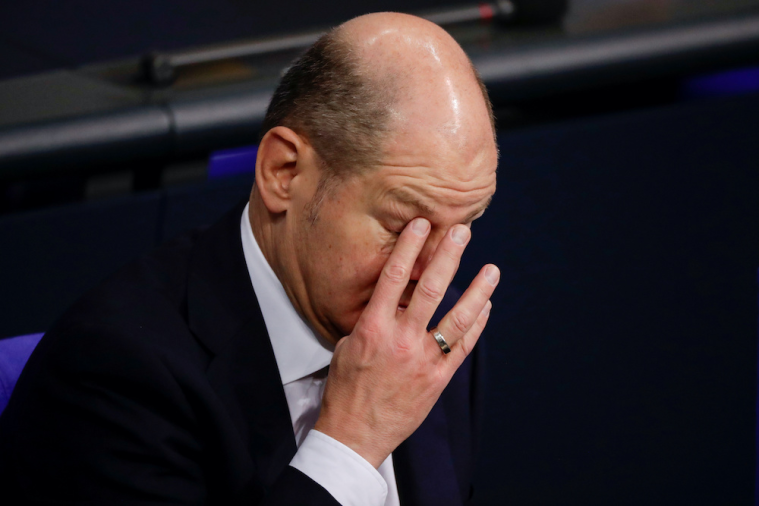
Chancellor Olaf Scholz’s center-left coalition faced a significant setback in Sunday's European Parliament elections, with the far-right Alternative for Germany (AfD) making unprecedented gains.
Projections from public broadcaster ARD revealed a notable decline for Chancellor Scholz’s Social Democratic Party (SPD), securing only 13.9% of the vote, down nearly 2 percentage points from the previous election. The Greens, Scholz’s coalition partner, plummeted to 11.9%, a stark drop from their 20.5% share five years ago. The liberal Free Democrats (FDP) saw a slight decrease to 5%.
This electoral blow is widely construed as a rebuke of the coalition government, whose approval ratings hit an all-time low of 22% this month. In contrast, the main opposition Christian Democrats (CDU/CSU) emerged as the frontrunner with 30.2% of the vote, a modest increase from their previous standing.
The anti-immigrant sentiment bolstered the AfD, which surged to a record 16% of the vote, up from 11% previously. Exit polls highlighted economic concerns among AfD supporters, particularly regarding irregular migration and maintaining their standard of living.
A notable newcomer, the left-wing populist party Bundnis Sahra Wagenknecht (BSW), secured 6.1% of the vote in its debut European election. The BSW’s platform focused on criticizing Scholz’s policies, particularly regarding Ukraine, advocating for diplomatic resolutions to the Russia-Ukraine conflict.
With an initial voter turnout of 65%, the highest in three decades, Germany's decision to lower the voting age to 16 for European Parliament elections seemed to boost youth engagement in politics.
In terms of European Parliament seat distribution, the CDU/CSU bloc is poised to claim 24 of Germany’s 96 seats, while the AfD secured approximately 16 seats. The Social Democrats are projected to secure only 14 seats, while the Greens and FDP are expected to have 12 and 5 seats respectively. Sahra Wagenknecht’s BSW is forecasted to win 6 seats, marking a significant presence for the fledgling party.